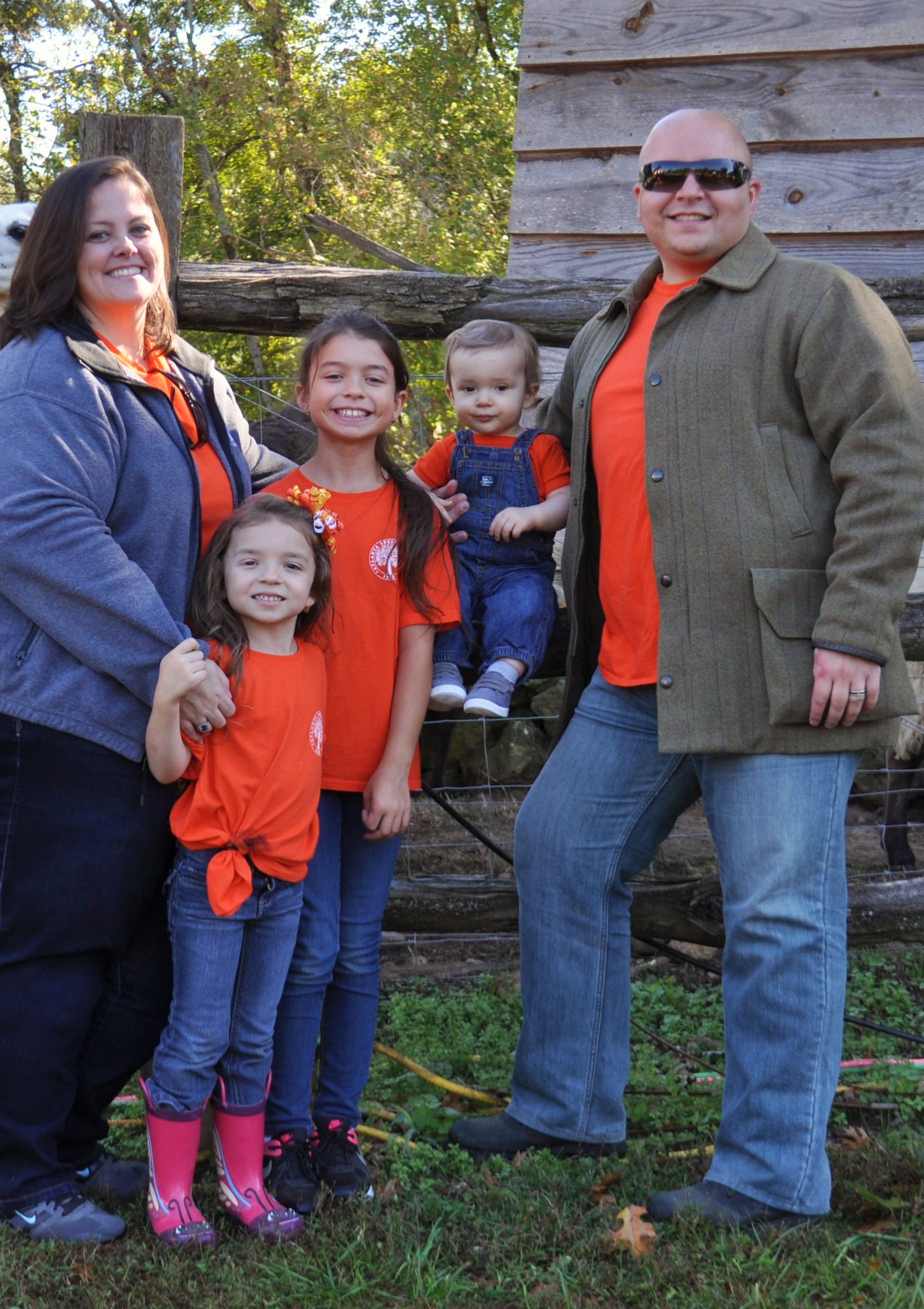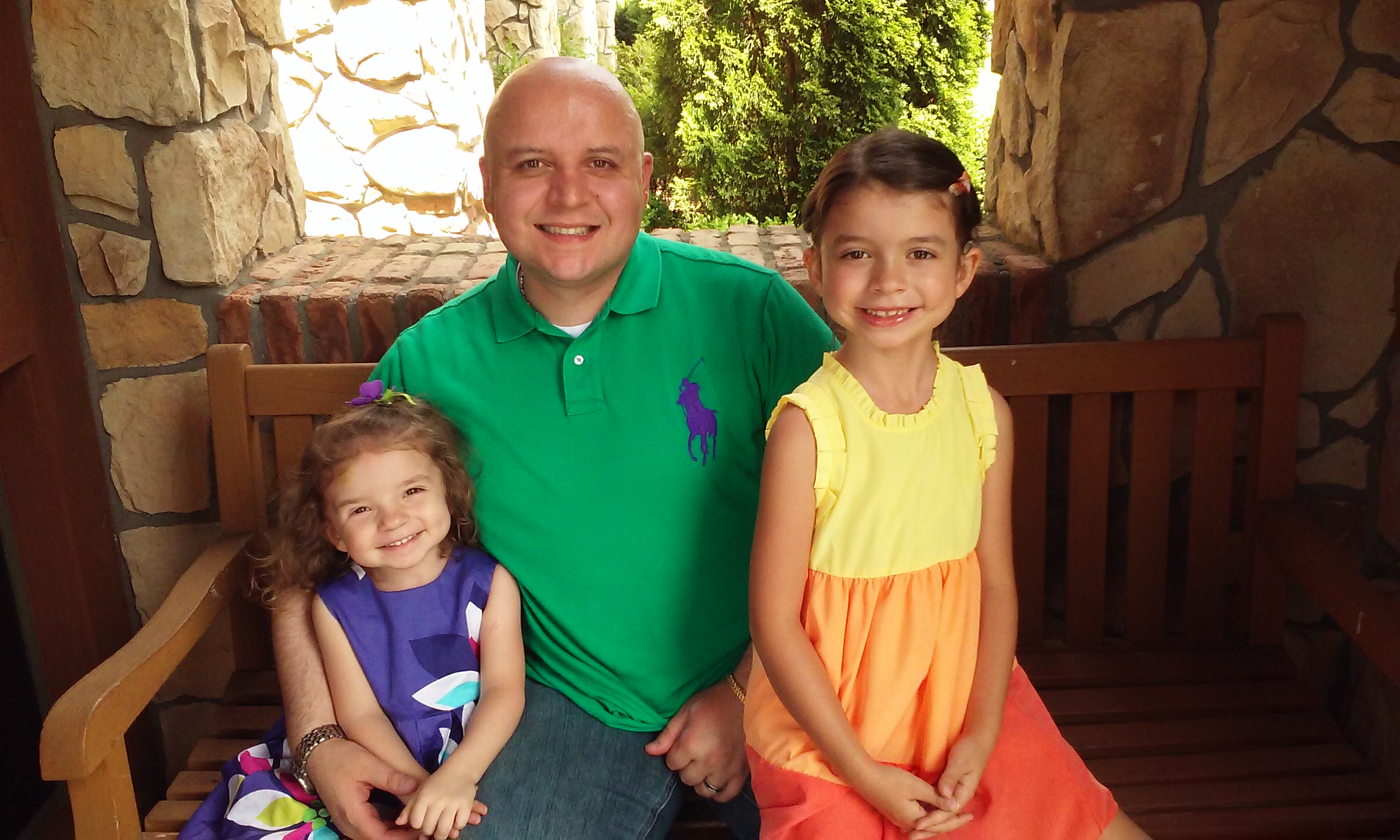Marin and Nala Zocca both live fulfilling lives with Connexin 26 – a generic mutation that causes congenital hearing loss – but it’s a family affair that brings success and joy to all of their lives.
By Cam Ellis
Barely a month into Marin Zocca’s life, her parents noticed a peculiar habit: she was sleeping through a lot of moments that one wouldn’t normally expect newborn babies to sleep through. She wasn’t responding to loud noises when awake, either. Doctors told the Zoccas it was probably just fluid in her ears, and not to worry – she had, after all, passed the initial hearing screenings. Remaining unconvinced, the Zoccas took Marin to a children’s hospital in Atlanta, near their home, where she received an auditory brainstem response (ABR) test. The test examines how the brain responds to sound.
“They confirmed, yes, she has severe-to-profound hearing loss,” said her father, Michael. “So that’s when we knew. And then we did genetic testing and we found that it was genetic. She has something called connexin 26.”
Connexin 26 is a genetic mutation that is one of the most common causes of congenital hearing loss. Geneticists told them that because of its prevalence on both sides of their family, any pregnancy the Zoccas had would come with a 75% likelihood of hearing loss.
“When they confirmed it, we were totally blindsided, and we sort of were emotional and cried for maybe five minutes,” Michael said. “And then we said okay, you know, what do we have here? We are very much proactive people. So, you know, we didn’t want to wallow in the sort of earth-shattering news.”
From then on, they tried to absorb as much information as they could. Could Marin hear anything at all? Would they have to learn sign language? Because of how severe her hearing loss was, electronic aids weren’t an option – even the best ones, they were told, would only make the loudest noises sound like faint whispers. That’s when they were introduced to the idea of cochlear implants. After AG Bell connected the Zoccas with a group of children who had previously gotten the procedure done, the family was almost immediately sure.
“We decided, there and then, that it was the journey that we wanted to start,” Michael said. “We felt that was the best way for Marin to have the same experiences that we had growing up.
“We also are lovers of music and theater. And we thought, well, if you can’t hear, you won’t be able to experience any of those things that are kind of our passions. So yeah, that’s the road we decided to go down.”
The process wasn’t always easy. Almost all of the Zoccas’ extended family lives abroad, so getting Marin – and eventually her younger sister, Nala, who also received cochlear implants – the help they needed was difficult at first, especially for two working parents. In order to prevent the girls from falling behind in school, they spent countless hours working on lip-reading exercises and emphasized the constant repetition of phrases. They were meticulous about narrating almost every aspect of daily life; Michael recalled how, during long car rides, he would lip-sync whatever song was on the radio and have the girls take turns guessing what song it was. Thirteen years later, they couldn’t be happier with the results – “life-changing” was the only way Michael could describe it. Along the way, and in no small part because of the positive experience he and his daughters have had with AG Bell, Michael also became a parent mentor.
“I’m someone who’s very hands on. I like to roll my sleeves up and get involved,” he said. “I’m available to any new families or to anybody that wants to have a chat or needs some advice every now and then.”
Unfortunately, because of the pandemic, more and more in-person meetups have been put on the backburner. Michael knows how impactful these meetings can be (their family story has gotten close to a half-dozen other families to become more involved) and he’s spent his time trying to set up Zoom sessions, despite all the limitations. It’s not his preferred method – that would be meeting up for ice cream – but he remains hopeful that those aren’t far away.
“That’s extremely rewarding,” he added. “When you know that your children have made an impact to the point where someone chooses to go with the same option as you, and make that kind of life changing step is extremely rewarding, you know?”
Today, Marin, perhaps unsurprisingly, surrounds herself with music, playing violin and piano; and dance (she has been dancing with the Joffrey School of Ballet and recently danced four parts in the Nutcracker). Nala recently graduated from speech school and loves to dance, too, and is an athlete. They’re currently working their way through the new Beatles documentary, though Michael jokingly conceded that his own musical tastes may have dictated that decision just a bit. Academically, Marin and Nala are thriving: both remain at the top of their class at The Galloway School, a private school that does not specifically cater to hearing disabilities.
“They’re reading well beyond their grade levels,” Michael said. “You know, I couldn’t be happier.
“I don’t repeat stuff to them anymore. I’m now like, hey, you need to clean your room. That’s the kind of stuff I repeat now.”

El papel de los progenitores
Con apenas un mes de vida, los padres de Marin Zocca advirtieron que la niña tenía un hábito peculiar: dormía en muchos momentos en los que no se esperaría que durmiera un bebé recién nacido. Tampoco respondía a ruidos fuertes cuando estaba despierta. Los médicos les dijeron que probablemente solo tendría líquido en los oídos y que no se preocuparan. Después de todo, había pasado el cribado auditivo inicial. Como no estaban convencidos, llevaron a Marin a un hospital infantil en Atlanta, cerca de su residencia, donde le realizaron una prueba de potenciales evocados auditivos del tronco cerebral (PEATC). En la prueba se examina la manera en que el cerebro responde al sonido.
«Confirmaron que efectivamente tenía una pérdida auditiva de severa a profunda», relata su padre, Michael. «Por lo tanto, en ese momento nos enteramos. A continuación, se realizaron pruebas genéticas y se descubrió que la causa era genética. Se debe a algo que se conoce como conexina 26».
La conexina 26 es una mutación genética y una de las causas más frecuentes de la pérdida auditiva congénita. Los genetistas les dijeron que, debido a su prevalencia en ambos lados de la familia, cualquier embarazo que tuvieran tendría una probabilidad de pérdida auditiva del 75 %.
«Cuando nos lo confirmaron, nos quedamos totalmente sorprendidos, nos emocionamos y lloramos unos cinco minutos», dice Michael. «Y a continuación preguntamos que se podía hacer. Somos perso
A partir de entonces, trataron de asimilar tanta información como pudieron. ¿Podría Marin oír algo? ¿Tendrían que aprender la lengua de signos? Debido a la severidad de su pérdida auditiva, los audífonos electrónicos no eran una opción, ya que les dijeron que incluso con los mejores solo se conseguiría que los ruidos más fuertes sonaran como débiles susurros. Fue entonces cuando se les presentó la idea de los implantes cocleares. Después de que AG Bell les hablase de un grupo de niños a los que ya se les había realizado el procedimiento, la familia se convenció casi de inmediato.
«En ese momento decidimos que era el itinerario que deseamos iniciar», explica Michael. «Pensamos que sería la mejor manera de que Marin tuviera las mismas experiencias que tuvimos nosotros en nuestra infancia.
«Además, somos amantes de la música y el teatro. Y pensamos que si no puedes oír, no podrás experimentar ninguna de estas actividades que son nuestras pasiones. Así que decidimos que era el camino a seguir».
El proceso no siempre fue fácil. Casi toda la familia ampliada de los Zocca reside en el extranjero, por lo que conseguir para Marin (y eventualmente para su hermana menor, Nala, que también recibió implantes cocleares) la ayuda que necesitaba fue difícil al principio, especialmente porque ambos progenitores trabajaban. Para evitar que las niñas sufrieran un retraso escolar, dedicaron innumerables horas a trabajar en ejercicios de lectura de labios y en la repetición constante de frases. Eran meticulosos al narrar casi todos los aspectos de la vida cotidiana; Michael recordaba cómo, durante los largos trayectos en automóvil, sincronizaba los labios con cualquier canción que sonara en la radio y pedía a las niñas que se turnaran para adivinar qué canción era. Trece años después, no podrían estar más contentos con los resultados: un «cambio de vida» era la única manera en que Michael podía describirlo. En el camino, y en gran parte debido a la experiencia positiva que él y sus hijas han tenido con AG Bell, Michael también se convirtió en un padre mentor.
«Soy una persona muy práctica. Me gusta arremangarme y participar», asegura. «Estoy disponible para cualquier familia nueva o para cualquier persona que desee conversar o necesite algún consejo de vez en cuando».
Desafortunadamente, debido a la pandemia, cada vez más reuniones en persona se han quedado en un segundo plano. Michael sabe lo impactantes que pueden ser estas reuniones (su historia familiar ha servido para que media docena de familias se involucren más) y ha dedicado tiempo a las sesiones de Zoom, a pesar de todas las limitaciones. No es su método preferido, que sería reunirse para tomar un helado, pero tiene la esperanza de que es algo que sucederá pronto.
«Es extremadamente gratificante», añade. «Ser consciente de que tus hijas han ejercido un impacto hasta el punto de que otras personas optan por la misma opción y realizan ese tipo de cambio de vida es extremadamente gratificante».
Actualmente, como era de esperar, Marin está involucrada en la música, toca el violín y el piano, y baila (en la Joffrey School of Ballet y recientemente actuó en cuatro partes de El Cascanueces). Nala se graduó recientemente en la escuela de habla, también le encanta bailar y es una atleta. Actualmente están trabajando en el nuevo documental de los Beatles, si bien Michael admite en broma que sus propios gustos musicales pueden haber influido un poco en esta decisión. Académicamente, Marin y Nala se desenvuelven a la perfección, ya que ambas se encuentran entre los alumnos mejores de su clase en The Galloway School, una escuela privada que no atiende específicamente las discapacidades auditivas.
«Su nivel de lectura es superior al de su curso», concluye Michael. «No podría estar más feliz.
«Ya no les repito las cosas. Lo que les digo es que deben limpiar su cuarto. Eso es lo que repito ahora».

